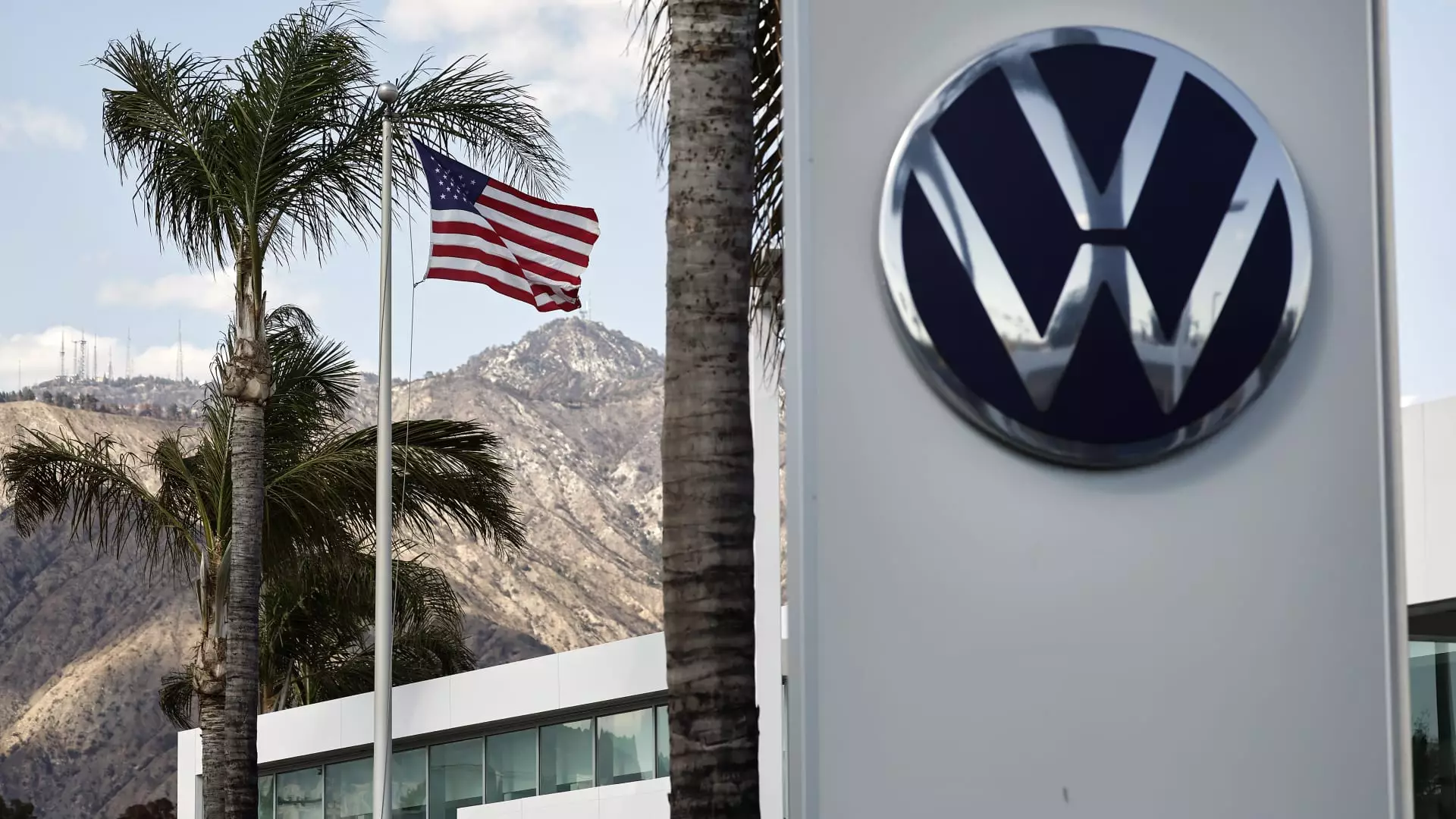Volkswagen, Europe’s largest automotive manufacturer, has encountered severe turbulence as it reported a staggering 37% drop in operating profit for the first quarter of 2024 compared to the previous year. The company’s operating profit plummeted to a mere 2.9 billion euros ($3.3 billion), starkly lower than the forecasts made by analysts, which had settled around 4 billion euros. This significant deviation highlights not just the underperformance, but the precarious position of the automotive giant amidst swirling economic uncertainties. Despite a 2.8% increase in sales revenue, up to 77.6 billion euros, the gloomy income figures raise critical questions about Volkswagen’s operational strategies in a market characterized by political unrest and tariff dilemmas.
Sales: A Silver Lining?
While it’s tempting to latch onto the 2.1 million vehicle sales figure, a modest year-on-year increase of 0.9%, one has to wonder whether this marginal growth can truly be considered a beacon of hope. It’s easy for companies to declare success when numbers rise slightly, but without substantial movement in the broader context, these figures can appear more like a smokescreen than a revival. Moreover, the notable 29% surge in order intake for Western Europe provides some relief, yet it doesn’t mitigate the stark realities confronting the global automotive market due to U.S. tariffs and political uncertainties. Is this growth merely a short-term blip before further declines?
Tariffs: The Double-Edged Sword
The realities of international trade and tariffs loom over Volkswagen like a dark cloud. U.S. President Donald Trump’s evergreen oscillation of trade policies has put tremendous strain on the car manufacturing sector, with auto tariffs remaining a contentious topic. Even as Trump announced plans to alleviate some tariffs, including a 25% duty on imported vehicles, the implications of such measures remain shrouded in complexity. The interconnected nature of global supply chains means that any relief offered is likely buried under layers of existing duties, leaving Volkswagen in a persistent state of vulnerability. It is alarming that a company of this stature remains so dependent on shifting political winds.
Management’s Response: Control Amidst Chaos
Volkswagen’s executives seem aware of the precarious situation. CFO Arno Antlitz acknowledged the volatility in their first-quarter statement, emphasizing the need for an agile approach to market dynamics. Antlitz’s call for focusing on controllable factors suggests a reactive stance that might become a crutch rather than a strategic guide. At what point does this search for operational efficiency give way to a deeper examination of the company’s mission and vision? Relying solely on the traditional assets of a robust product range and a competitive cost structure may not be sufficient for navigating such tumultuous waters.
Furthermore, with net cash flow dipped to -0.8 billion euros, the question arises whether Volkswagen’s management has a long-term strategy that goes beyond short-term profits. Under these conditions, will the company’s attempts to reinforce its standing in the market lead to innovative advancements, or are they simply scrambling to maintain their foothold in an increasingly challenging setting?
Future Outlook: A Mixed Bag
As the year unfolds, Volkswagen anticipates that key financial metrics such as operating return on sales and net liquidity will fall at the lower end of their annual forecasts. This cautious outlook underscores the insights of a company that knows its environment is fraught with volatility. The interplay of trade restrictions and emissions regulations only adds layers of complexity to an already challenging operational landscape.
Investors reacted accordingly, with Volkswagen shares dipping 0.7% amidst news of disappointing results. The implications are evident: as profitability wanes, confidence in the brand may be eroded, potentially leading to a stranglehold on investment opportunities. The inherent challenges presented by the global auto industry’s reliance on American policy will require Volkswagen to rethink its operational strategies while recovering its lost revenue streams.
The urgency of the situation calls for not only resilient management decisions but a revitalization in the way Volkswagen approaches the challenges posed by tariffs and trade relations. The German auto industry must traverse these choppy waters with renewed intelligence and innovation, or face the risk of becoming just another casualty in the ongoing trade saga.

